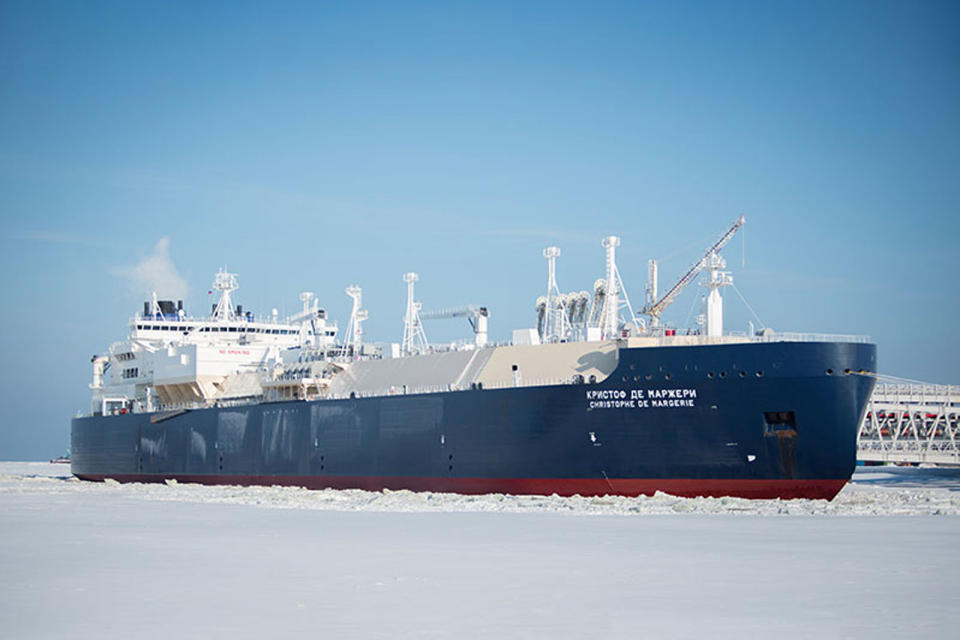Tanker's speedy Arctic crossing is bad news for the planet
It's as much a testament to climate change as it is technology.
Normally, smashing a transportation record is something to celebrate. This time, however, it's not necessarily worth cheering. Sovcomflot's liquefied natural gas (LNG) tanker Christophe de Margerie has become the first merchant ship to cross the Northern Sea Route without an icebreaker clearing its path. The vessel, which can plow through ice up to 6.9 feet thick all by itself, completed the icy part of a trip from Norway to South Korea in a record-setting 6.5 days by keeping up speeds (an average of 14 knots) that would have been impractical with the usual escort. That's despite ice as thick as 3.9 feet. So what's so bad? Unfortunately, it's as much an indication of the effect of global warming as it is technological progress.
As the BBC points out, Arctic sea ice levels have declined over the past 30 years -- and Sovcomflot doesn't expect the ice to thicken to a significant degree over the useful lifespan of the Christophe de Margerie and its eventual 14 companion ships. Environmental groups like Seas at Risk suspect that this journey is only possible because climate change has made it easier for ships to cross in the first place.
And while this does mean that crucial LNG supplies can reach other countries at virtually any time of the year, the increased ship traffic could exacerbate environmental issues. Never mind the risk of a spill -- the ships traveling the Northern Sea Route may use dirtier fuels that could hurt ice in the region and accelerate melting. These cutting-edge ships may save time, but it might be at a steep price.


